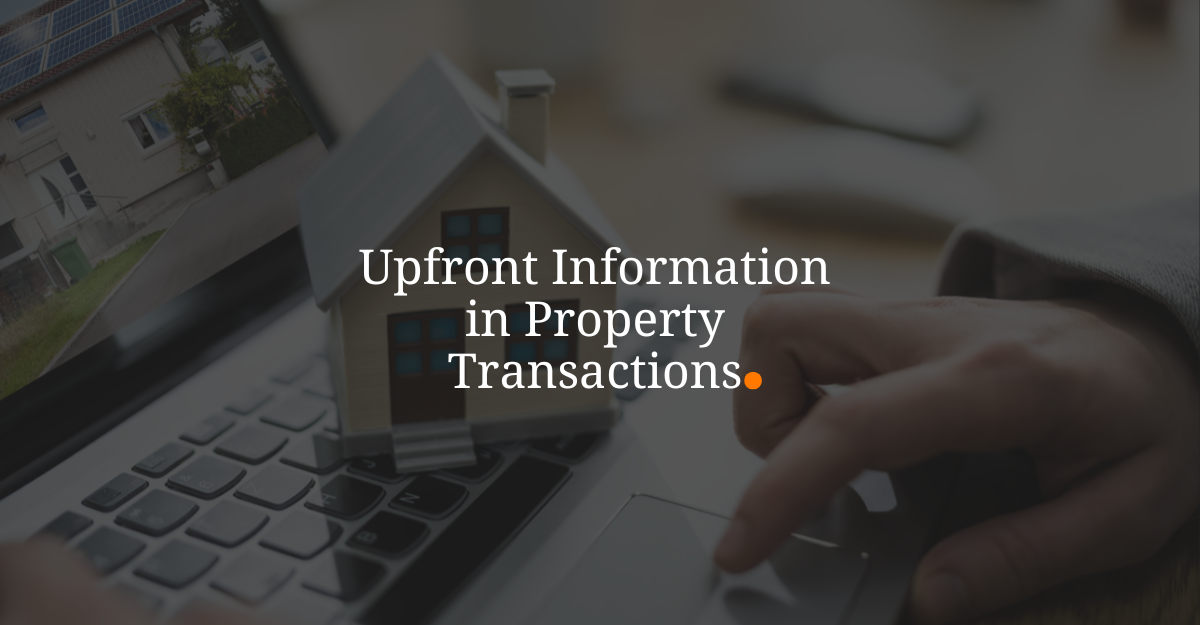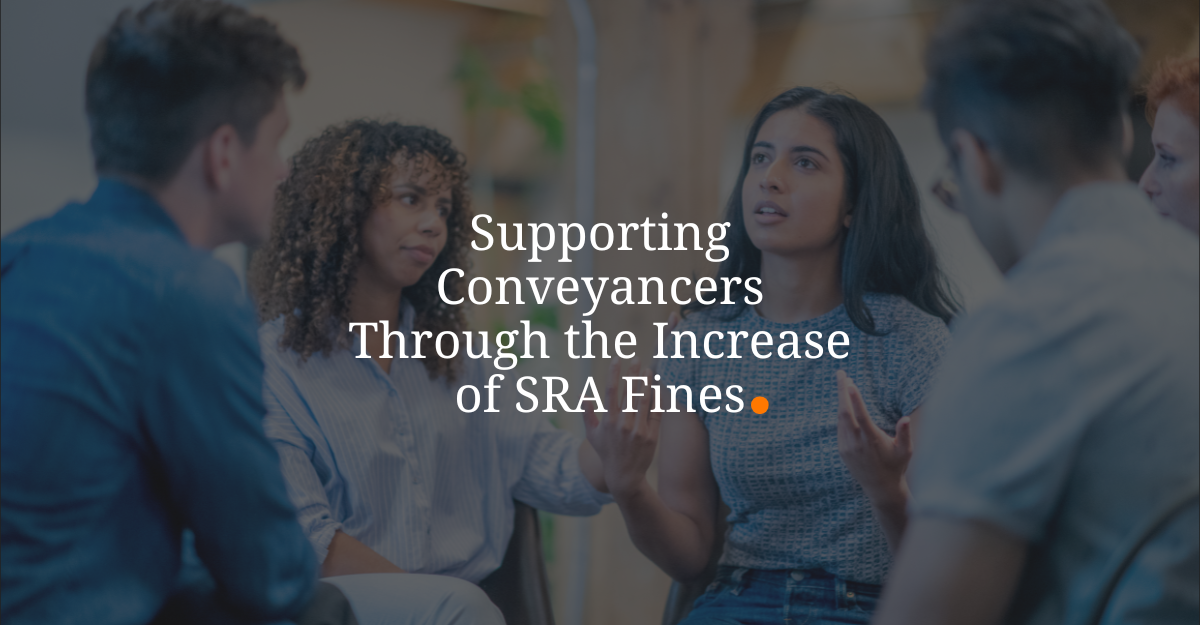Written by: Joanna King, Legal and Compliance Analyst, Ochresoft Technologies, April 2019
The Law Society’s Conveyancing Quality Scheme (CQS) was first launched in January 2011. The scheme was set up to offer the regulators, lenders, insurers, and most importantly, the home movers, a recognisable standard of excellence in provision of residential conveyancing services.
Unquestionably, accredited practices equally benefit from the established benchmark. Mandatory training of conveyancers, procedures for the ongoing monitoring and enforcement of standards, and above all the mandatory use of the Law Society’s Conveyancing Protocol continue to encourage improvements in conveyancing best practice, client service and practice management. Active promotion of the CQS quality mark is reflected in added credibility and gravitas for member firms and continues to strengthen consumer confidence in the choice of their conveyancing professional.
Following the publication of the new Core Practice Management Standards (CPMS) in February this year, the CQS scheme is soon to be relaunched with some far-reaching changes. All existing members as well as new applicant firms will have to tailor their policies and procedures to ensure compliance with the new Standards from 1 May 2019.
The essence of the relaunched CQS scheme will focus on the delivery of three core values, which are:
- members will proactively and effectively manage risk and demonstrate behaviours that support and promote the integrity of CQS and the community;
- members will demonstrate best practice and excellence in client care through robust practice management of residential conveyancing;
- members will demonstrate thorough knowledge and skill in handling conveyancing transactions.
Along with additional desk-based assessments, the Law Society will also be introducing a small number of on-site visits each year, which will be carried out by an independent assessment body. The visits will be followed up with corrective action reports with the aim of embedding the culture of continuous improvement and drive to achieve the core values of CQS. It is expected that best practice tips will also continue to be shared with the wider CQS community to support compliance with the new Standards.
Overview of the changes
Firms who hold Lexcel accreditation will already be familiar and compliant with a number of new requirements, which are now being introduced as part of CQS. A range of additions, however, requires a particular mention.
Land Tax policy
From May, CQS firms will be required to have a policy in place in relation to the calculation and advice given to home buyers in respect of their Land Tax obligations. The new Standards anticipate that member firms will be able to demonstrate the full audit trail of the advice given to the clients, information collected for the purpose of establishing the tax liability, as well as verification of the Land Tax calculation being noted on the file. It is proposed that such verification would be carried out by another experienced individual within the firm, however smaller firms or those that outsource the calculations may consider an alternative approach to meet this new requirement.
Leasehold properties
The new changes will explicitly require CQS firms to establish a firm wide policy for dealing with purchases of leasehold properties. As a minimum, in addition to the length of the remaining lease term, the clients should be advised about the amount of ground rent and service charge and provisions in the lease for their review and method of calculation.
The policy should also set out that the purchaser and the lender are to be treated as equal clients and reference is made to ensuring the lender’s specific requirements under Part 2 of the UK Finance Lenders’ Handbook are always observed.
We discussed the importance of effective risk management when faced with onerous ground rents in this blog post.
Handling of conflicts
Practices will now be required to have a set process on the handling of conflicts. This must include steps to follow when a conflict has been identified; or a policy for an assessment of a potential risk of conflict, when representing both sides of a transaction. The scope of this requirement reaches much further, however. It also seeks an assurance that any information, which may affect the lending decision, will be brought to the lender’s attention, provided consent to disclose it has been obtained from the client. In the absence of such consent from the client, the lender must be advised that a conflict of interest has arisen preventing the firm from continuing to act for the lender.
UK Finance Lenders’ Handbook
Obligations towards the client’s lender are further enhanced by the new Standard setting out to ensure ongoing compliance with the lender-specific requirements under Part 2 of the Lenders’ Handbook. Firms must have a documented procedure in place for reporting matters to the lenders in the required form, highlighting the need for valuation or surveyor referral, where necessary.
Property and mortgage fraud
Requirements have also been strengthened to mitigate the risks of property and mortgage fraud, as well as the risks of money laundering and terrorist financing. The new Standards reinforce obligations towards relevant checks of the client’s identity and checks against the conveyancer acting for the other party. The new CPMS also highlight the duty to carry out relevant risk assessments as well as the need for ongoing communication and staff training to raise awareness of typical warning signs and how to report and manage high risks transactions.
Our legal software is here to help
Intelliworks case management software from Ochresoft has been designed to reflect the spirit and the high standards set out in the Conveyancing Quality Scheme. Our specialist legal workflows are based on conveyancing good practice and the principles of the Law Society’s Conveyancing Protocol, which, whilst mandatory only for CQS accredited firms, is commonly recognised and adopted by the wider conveyancing profession.
With Intelliworks’ comprehensive suite of Land Tax documentation and its full range of workflow automations, managing your CQS compliant Land Tax policy has never been easier. From enquiries for additional dwelling surcharge, first time buyer relief and complex Land Tax rules governing shared ownership properties, to Land Tax calculation, verification and automated SDLT Return submission straight from the case, recording the full Land Tax audit trail will not divert the fee earner’s focus away from their client’s transaction.
Intelliworks also provides unrivalled leasehold related content and workflows, as well as a live feed to UK Finance Lenders’ Handbook offering specific targeted paragraphs, tailored to the context of the enquiry. With a combination of Ochresoft’s comprehensive leasehold suite and its wide-ranging Lenders’ Handbook Reporting tool, achieving compliance with the relevant CQS requirements will be easy and straightforward.
Intelliworks’ workflows will also support the firm and the fee earner in the conflict assessments, compliance with Money Laundering Regulations 2017 or in mitigating the risk of property and mortgage fraud. Yes, we’ve got tools to cover these, too!
To request the full factsheet showing how Intelliworks can help you deliver compliance with the new Core Practice Management Standards, please contact Ochresoft on 03300 366700.



